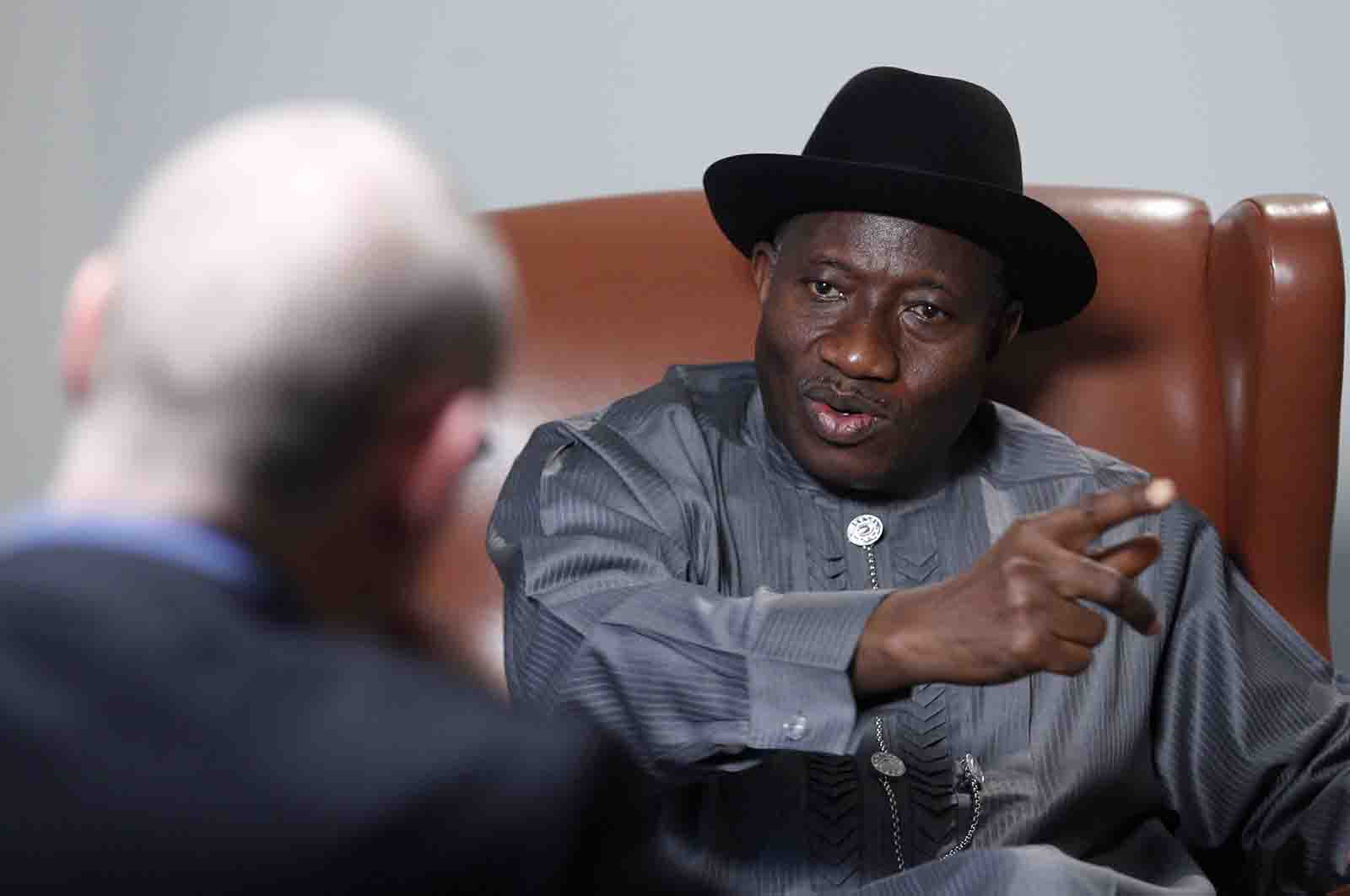The memo by Adamawa State Governor, Murtala Nyako, alleging genocide in the North-east against the federal government, was unanimously condemned at Thursday’s enlarged national security meeting.
Briefing State House correspondents after the 7-hour meeting April 24, 2014, Governor Babangida Aliyu of Niger State said Nyako’s memo was read and deliberated upon.
Tribune reports:
The expanded National Security Council rose from its meeting, presided over by President Goodluck Jonathan, on Thursday, condemning Governor Murtala Nyako of Adamawa State over his memorandum to northern governors, where he accused the president of orchestrating genocide in the war on terror.
Nyako was asked to read the memorandum in the course of the meeting, after which he was unanimously condemned for incitement and attempting to divide the country.
The meeting started at about 12.00 noon and ended at 6.45 p.m.
Minister of Defence, General Aliyu Gusau, briefed State House correspondents after the meeting and was flanked by Governors Theodore Orji (Abia), Babangida Aliyu (Niger), Kayode Fayemi (Ekiti) and Kashim Shettima (Borno).
Gusau said the council deliberated on various security challenges facing the country, including Boko Haram, kidnapping, cattle rustling, among others.
He said the meeting resolved that security should not be left to government alone, as it was the business of every citizen.
“The conclusion of the meeting is that the Federal Government should do everything in its power with the collaboration of state and local governments and everybody in Nigeria to see that we bring this unfortunate situation in Nigeria under control.
“It was also decided that security is everybody’s responsibility. It is not only the responsibility of the government, it is the responsibility of everybody. Everybody should be security conscious and report anything suspicious to the authorities,” he stated.
Governors Aliyu and Orji said the meeting discussed Nyako’s memo and stressed the need for people in authority to refrain from utterances capable of dividing the country.
Aliyu said the meeting stressed the need for more security consciousness on the part of citizens, noting that security could not be left to government alone.
He also advised the media to be cautious, citing the operations in other parts of the world where, he observed, journalists considered national interest in their reports.
The Niger State governor also spoke of measures to resolve the lingering Fulani/farmers clashes, noting that government had decided to explore long term solutions.
On religious issues, he spoke of the need to re-educate preachers to ensure they told their followership only what was in the scriptures.
The meeting also stressed the need for cooperation with neighbouring countries and synergy among the security forces in the war on terror.
He said they agreed that tension should be minimised, with the removal of settler/indigeneship problems in parts of the country.
The meeting, according to him, also commended security agencies for being proactive in the war on terror.
Governor Orji said that security should be handled in a corporate way among all tiers of governments and that the state governors must do more to help.
He said the governors should make more use of their media to sensitise their people, adding that traditional rulers too should be fully involved
The meeting, according to him, noted that the Boko Haram insurgency was not a religious war, as it had not discriminated against Christians and Muslims.
Governor Fayemi stressed the need to tackle security issue without partisan consideration, saying that security agencies must be professional in their operations, with the sharing of intelligence to aid in tracking criminals.
He added that the meeting recommended anti-poverty strategy, as part of the overall solution to the security challenges in the country.
Fayemi noted that the council agreed that the abduction of schoolgirls in Chibok, Borno State, was a concern, noting that the meeting stressed the need for everything to be done to retrieve the girls unharmed.
Borno State governor said the meeting was fruitful and advanced the deployment of advanced security equipment.
He noted that terrorism was not unique to Nigeria, adding that it would be surmounted.
Jonathan came into the Aso Rock Chambers, venue of the meeting, shortly after 12 noon and immediately called for opening prayers from the Sultan of Sokoto, Alhaji Abubakar Sa’ad and the president of the Christian Association of Nigeria (CAN), Pastor Ayo Oritsejafor, representing spiritual leaders.
Other governors present at the meeting were Willie Obiano (Anambra), Seriake Dickson (Bayelsa), Martin Elechi (Ebonyi), Abdulaziz Yari (Zamfara), Ramallan Yero (Kaduna), Abdulfatah Ahmed (Kwara), Emmanuel Uduaghan (Delta), Tanko Al-Makura (Nasarawa), Gabriel Suswam (Benue), Saidu Dakingari (Kebbi), Aliyu Wamakko (Sokoto), Umar Garba (Taraba), Olusegun Mimiko (Ondo), Liyel Imoke (Cross River), Isa Yuguda (Bauchi), Godswill Akpabio (Akwa Ibom), Ibrahim Shema (Katsina), Sullivan Chime (Enugu), Rauf Aregbesola (Osun), Idris Wada (Kogi) and Ibrahim Dankwambo (Gombe) .
Jigawa, Edo, Kano, Imo, Rivers, Plateau, Ogun, Oyo and Yobe states were represented by their deputy governors.
Also present were service chiefs, Jones Arogbofa (Chief of Staff to the President), ministers, including Bala Mohammed (Federal Capital Territory), Mohammed Adoke (Attorney-General), Akinwunmi Adesina (Agriculture), Abduljelili Adesiyan (Police Affairs), Viola Onwuliri (Foreign Affairs II), Ayim Pius Ayim (Secretary to Government of the Federation), National Security Adviser, heads of para-military organisations, among others.







